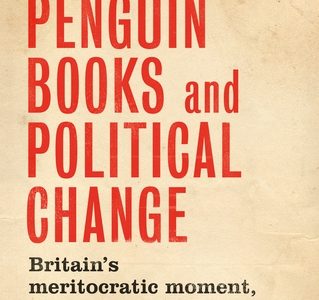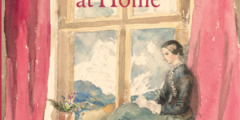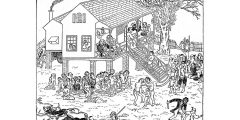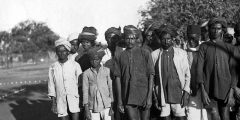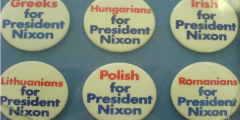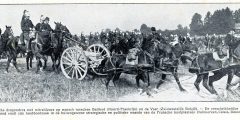New book on Penguin Books from Dr. Dean Blackburn
December 7, 2020
The author writes: Penguin Books and Political Change traces the social and political thought of those intellectuals and policy-makers who helped to shape post-war. In doing so, it tells a story about the rise and fall of what we might call Britain’s ‘meritocratic moment’. From the 1930s, I argue, thinkers from across the political spectrum began …
New book by Anna Greenwood and Richard Bates
December 3, 2020
Florence Nightingale at Home by Paul Crawford, Anna Greenwood, Richard Bates & Jonathan Memel This co-authored monograph, released in the year of Florence Nightingale’s bicentenary, proposes a new understanding of Nightingale’s life, work, and ideas by considering them through the prism of the concept of ‘home’. This was a key notion in the nineteenth century, …
Dr. Arun Kumar’s new article in Past & Present
December 2, 2020
This article examines the emergence of mass letter-writing in the late nineteenth- and early twentieth-century colonial north India, a region marked by the growth of an unprecedented labour mobility, postal expansion, vernacular print, and workers’ literacy. It narrates how workers’ and their family members’ abilities and failures to read and write letters shaped their experiences …
Dr. Sascha Auerbach’s new project awarded a Leverhulme Research Fellowship
September 14, 2020
Dr. Sascha Auerbach has been awarded a one-year Leverhulme research fellowship to pursue his third book project on race, labour and migration in the 19th c. British Empire. The project was featured this month in the Leverhulme’s “Grants in Focus” newsletter.
Dr. Anna Toropova’s new book on Stalin-era cinema and emotion
September 3, 2020
Feeling Revolution: Cinema, Genre, and the Politics of Affect under Stalin (Oxford: Oxford University Press, 2020) explores cinema’s vital role in cultivating the distinctive emotional values and norms of the Stalin era, ranging from happiness and victorious laughter to hatred for enemies. Reading Stalin-era cinema as a ‘laboratory’ of emotional revolution, the book explores how the …
Dr. Arun Kumar publishes article on Dalit identity and education in India
This article investigates Dalits’ dreams and desires for education in the United Provinces by examining hitherto unexplored records of the American Methodist Church missionaries and the Arya Samaj from the late nineteenth and early twentieth centuries. Focussed on the schools opened for Dalits and Dalit Christian converts by these two religious organisations, it explores the …
Dr. Anna Greenwood helps lead new project under the UNZA Nottingham collaboration agreement
Colleagues Murray Lark (Bio Science), Anna Greenwood (History) and Alison Mohr (Sociology) at the University of Nottingham in collaboration with University of Zambia have initiated an innovative research project “Towards transdisciplinary understanding of inherited soil surveys: an exploratory case study in Zambia”. The project was recently approved for funding by the Arts and Research Humanities …
Dr. Joe Merton looks at ethnicity and politics in 1970s America
May 19, 2020
Had there been a “normal” presidential election campaign this year, it might have been a surprise to see the candidates proudly declaring “Polish Power” or trudging the streets of Little Italy or Ukrainian Village. As the locus of identity politics has shifted over the past four decades, these sights have largely receded from US presidential …
Dr. Rob Lutton’s new article on religious change in the long fifteenth century
May 18, 2020
Rob Lutton’s new article discusses the Europe-wide late medieval phenomenon of the cult of the Holy Name, using it as a case study to discuss the relationship of micro-and macro-historical transformations by scrutinizing the enormous success of a religious innovation which managed to spread to many different local contexts and social groups. After pointing out …
Britain’s entry into the First World War, seen through a wonderful tranche of Open Access articles from Prof. John Young
Among the many items available on ‘Open Access’ from the Department of History at the University of Nottingham are four articles, by John W. Young, which aim to deepen our understanding of Britain’s decision to declare war on Germany in 1914. The first of these articles is ‘Conservative Leaders, Coalition, and Britain’s decision for war …

